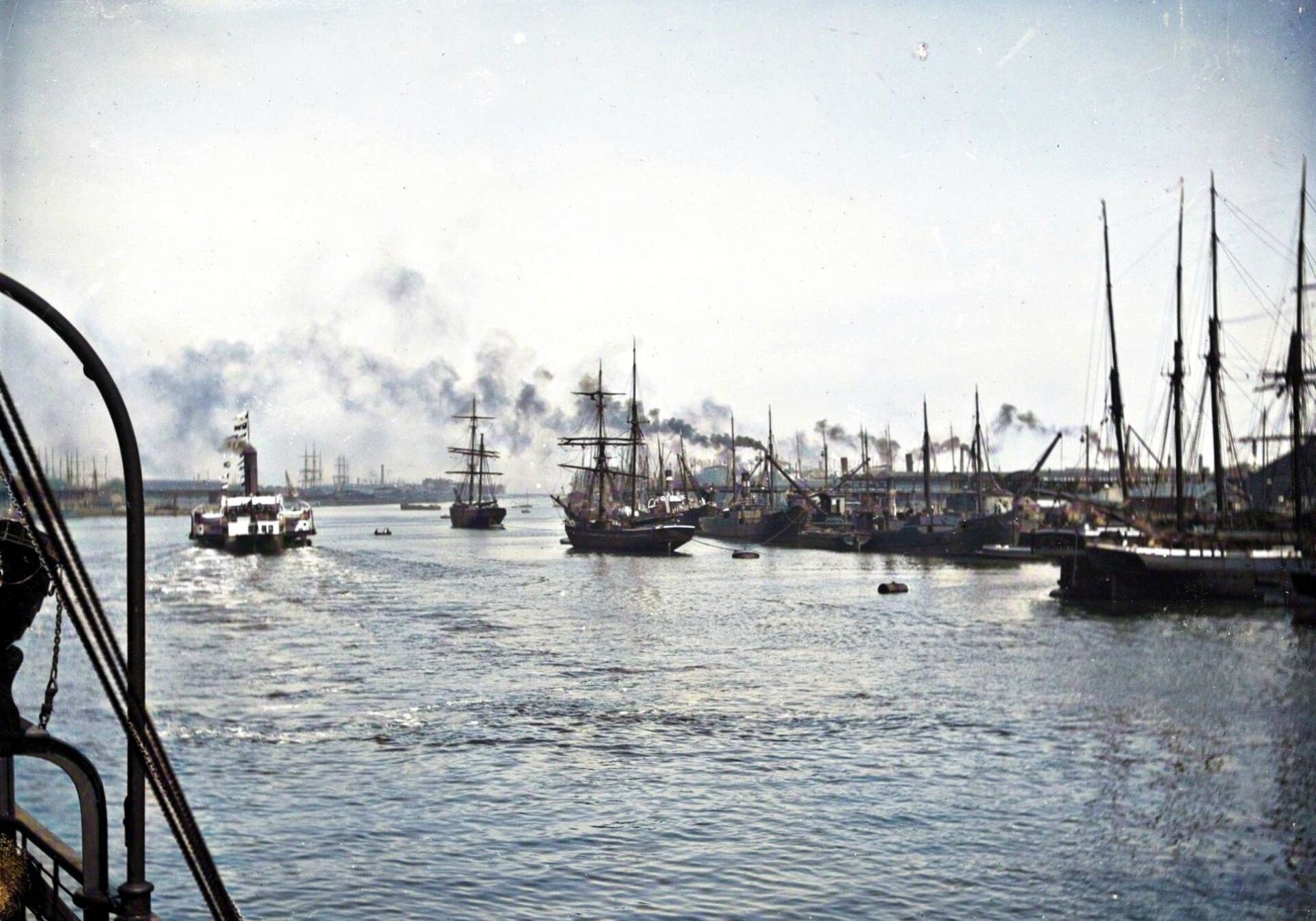Genealogy has become an increasingly popular pastime for many people seeking to learn more about their family history. For those of Irish descent, passenger lists and immigration records can be invaluable resources for tracing one’s ancestral roots. This article will provide a detailed, easy-to-understand guide on where to find these records and how to use them effectively in your genealogical research.
Passenger Lists and Immigration Records – What Are They?
Passenger lists and immigration records are essential documents for tracing your Irish ancestors who traveled to new lands seeking a better life. These records contain information about individuals who emigrated, including their names, ages, occupations, and details about their journey. This information can help you learn more about your family’s history, as well as their experiences during the migration process.
Passenger Lists
Passenger lists are documents created by shipping companies that recorded the details of passengers aboard their vessels. These lists typically include information such as the name, age, sex, occupation, and nationality of each passenger, as well as their destination and the name of the ship they traveled on.
Immigration Records
Immigration records, on the other hand, are documents created by the government of the destination country. These records were used to track and document the arrival of immigrants in their new homeland. They often contain information similar to that found in passenger lists, but may also include additional details such as the immigrant’s physical description, place of origin, and the name and address of a relative or friend in the destination country.
Where to Find Passenger Lists and Immigration Records
There are several resources available for locating passenger lists and immigration records related to Irish immigrants. Some of the most popular and useful sources include:
National Archives of Ireland
The National Archives of Ireland (NAI) is a treasure trove of information for those researching their Irish ancestry. Among the many records held by the NAI are passenger lists and immigration records dating back to the 18th century. These can be accessed in person at the NAI’s headquarters in Dublin or, in some cases, online via their website.
Website: https://www.nationalarchives.ie/
The Public Record Office of Northern Ireland (PRONI)
Located in Belfast, the Public Record Office of Northern Ireland (PRONI) holds an extensive collection of records related to the history of Northern Ireland. This includes passenger lists and immigration records for Irish emigrants who departed from or arrived in Northern Ireland. You can access these records in person or through PRONI’s online catalog.
Website: https://www.nidirect.gov.uk/proni
The National Archives (UK)
The National Archives in the United Kingdom is another excellent resource for finding passenger lists and immigration records related to Irish emigrants. The archives contain records dating back to the 18th century, including the Board of Trade’s collection of outbound passenger lists from 1890 to 1960. These records can be accessed in person at the National Archives in Kew, London, or through their online catalog.
Website: https://www.nationalarchives.gov.uk/
The National Archives and Records Administration (NARA)
For those researching Irish ancestors who emigrated to the United States, the National Archives and Records Administration (NARA) is an invaluable resource. NARA holds a vast collection of
passenger lists and immigration records for Irish immigrants arriving in the United States between the late 18th century and the mid-20th century. These records can be accessed in person at NARA facilities across the country or through their online catalog.
Website: https://www.archives.gov/
Library and Archives Canada
If you’re researching Irish ancestors who emigrated to Canada, Library and Archives Canada is the go-to resource. They hold an extensive collection of passenger lists and immigration records dating back to the early 19th century. Many of these records can be accessed online through the Library and Archives Canada website.
Website: https://www.bac-lac.gc.ca/
Ellis Island and the Statue of Liberty Foundation
For those researching Irish immigrants who arrived in the United States through the Port of New York, the Ellis Island and Statue of Liberty Foundation is an excellent resource. Their online database contains millions of passenger records from ships that arrived in New York between 1892 and 1957. This free resource allows you to search for your Irish ancestors by name, date of arrival, and other criteria.
Website: https://www.libertyellisfoundation.org/
Ancestry.com and FamilySearch
Popular genealogy websites such as Ancestry.com and FamilySearch also offer access to a wealth of passenger lists and immigration records. These sites have digitized and indexed millions of records, making it easier than ever to search for your Irish ancestors. Keep in mind that while FamilySearch is a free resource, Ancestry.com requires a subscription for access to many of its records.
Website: https://www.ancestry.com/ Website: https://www.familysearch.org/
How to Use Passenger Lists and Immigration Records in Your Research
Once you’ve located passenger lists and immigration records related to your Irish ancestors, it’s essential to know how to use this information effectively in your genealogical research.
Analyzing the Information
Start by carefully examining the information contained in the records. This may include names, ages, occupations, destinations, and other details that can help you build a more complete picture of your ancestor’s life. Be aware that spelling variations and transcription errors are common, so be flexible when searching for your ancestors in these records.
Connecting the Dots
Use the information from passenger lists and immigration records to connect your Irish ancestors to other genealogical records, such as birth, marriage, and death records. For example, if you find a passenger list that includes your ancestor’s name and age, you may be able to use this information to locate their birth record in Ireland.
Identifying Patterns
Passenger lists and immigration records can also provide insight into larger patterns in your family’s history. Look for trends in the destinations of your ancestors, the time periods during which they emigrated, and the reasons behind their decision to leave Ireland. This can help you gain a deeper understanding of the historical context in which your ancestors lived.
Collaborating with Others
Finally, consider collaborating with other researchers who are also searching for their Irish ancestors. Online genealogy forums, social media groups, and local genealogical societies are great places to connect with others who may be able to offer valuable insights or resources related to your research.
In conclusion, passenger lists and immigration records are powerful tools for tracing your Irish ancestry. By learning where to find these records and
how to use them effectively, you can uncover a wealth of information about your family’s history and the experiences of your Irish ancestors as they embarked on their journeys to new lands. Remember to be patient and persistent in your research, as the process of piecing together your family’s story can be both challenging and rewarding. As you delve into these records, you’ll gain a deeper appreciation for the courage, determination, and resilience of your Irish ancestors who sought a better life for themselves and their descendants.
Tips and Tricks for Successful Research
To make the most of your research into passenger lists and immigration records, consider the following tips and tricks:
Be Flexible with Names and Dates
Due to differences in handwriting, transcription errors, and the potential for name changes upon arrival in a new country, it’s crucial to be flexible when searching for your ancestors in passenger lists and immigration records. Consider alternate spellings, nicknames, and variations of your ancestors’ names, and be open to searching within a range of dates to ensure you don’t miss any important records.
Use Multiple Resources
While some records may be available through a single source, it’s essential to explore multiple resources to ensure you’re accessing the most comprehensive collection of passenger lists and immigration records related to your Irish ancestors. Check national archives, online databases, and genealogy websites for additional records that may not be available through a single source.
Keep Detailed Records
As you research your Irish ancestors, be sure to keep detailed records of your findings. Create a research log that includes the date, repository or website, and specific records you’ve accessed, as well as any pertinent information you’ve discovered. This will help you stay organized and make it easier to pick up where you left off in your research.
Network with Other Researchers
Connecting with other genealogists who are researching their Irish ancestry can be an invaluable resource. They may be able to offer insights, share resources, or provide guidance based on their own experiences. Consider joining online forums, social media groups, or local genealogy societies to build your network of fellow researchers.
Be Persistent and Patient
Genealogy research can be a challenging and time-consuming process, but the rewards of uncovering your family’s history are well worth the effort. Be persistent in your search for passenger lists and immigration records, and be patient as you sift through these documents to piece together the story of your Irish ancestors.
By following these tips and making use of the resources outlined in this article, you’ll be well on your way to discovering your Irish heritage and the fascinating stories of your ancestors who bravely embarked on new journeys in search of a better life.






Leave a reply